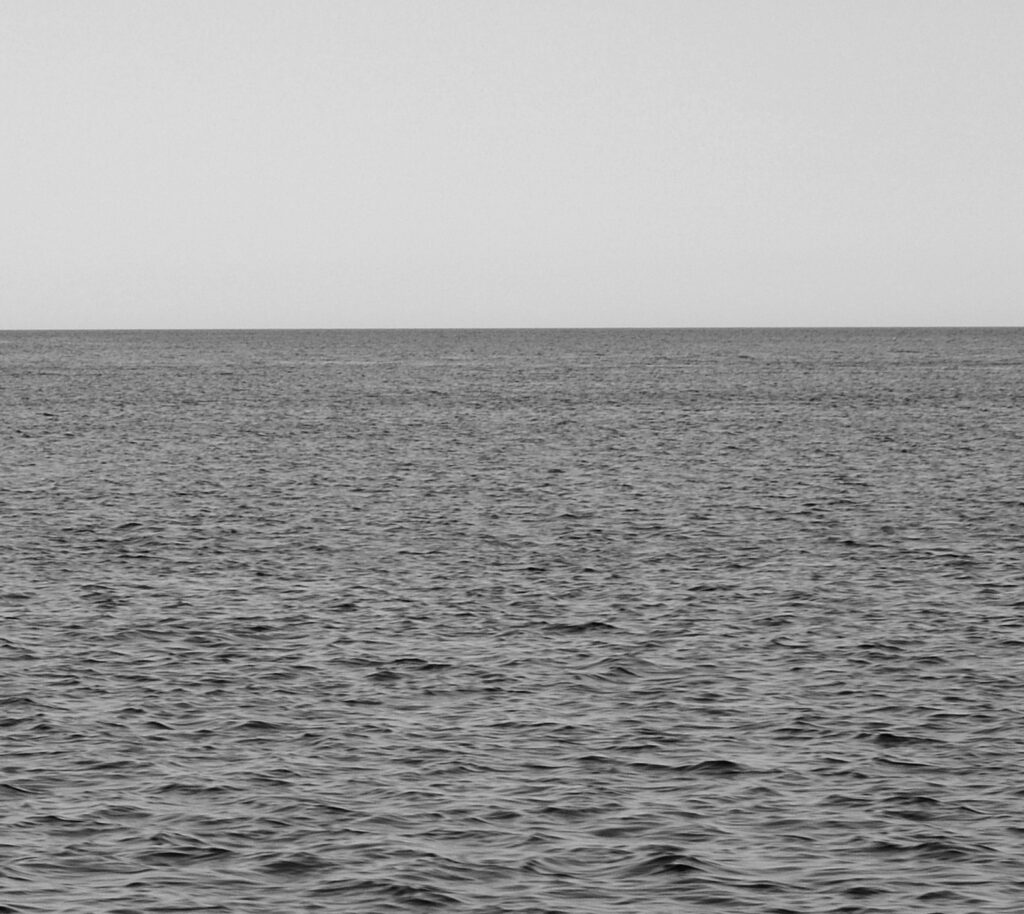The Pact: Play
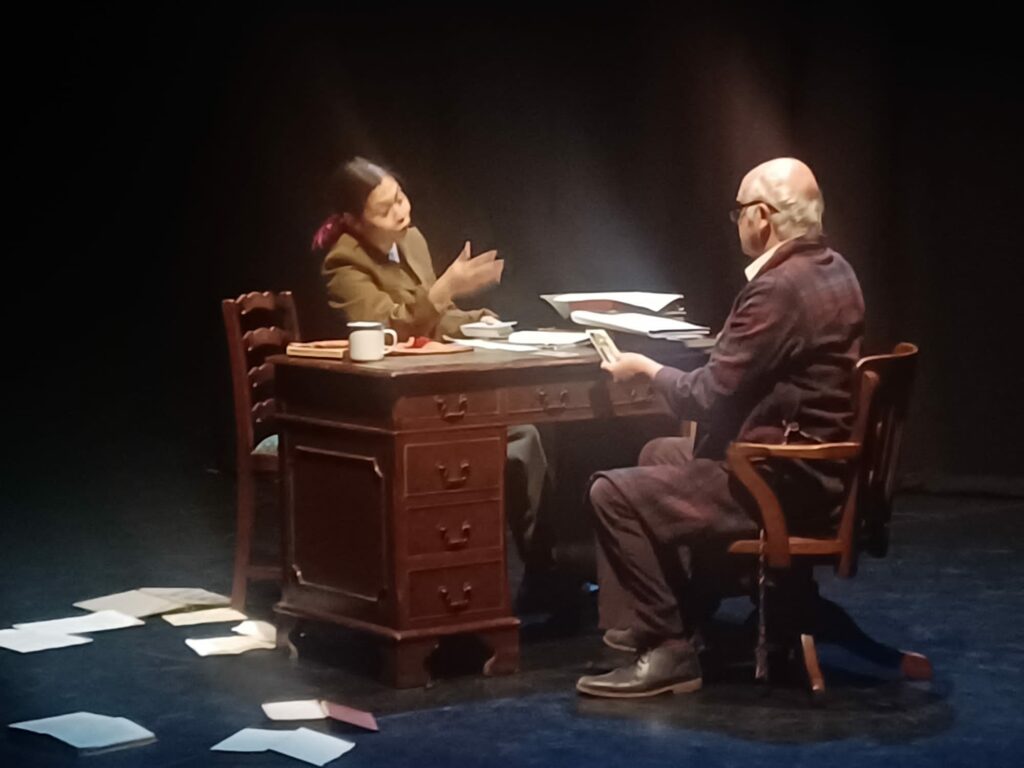
The Pact has had an online Zoom reading in March 2021, with Irish actors Mark Lambert, reading Blank, and Ingrid Craigie, reading Malina. In July 2023, The Pact had a staged reading at the Studio Theatre, Edge Hill University, directed by Victor Merriman, with Mark Lambert as Blank and Missy Maramara as Malina.
Vladimir Lenin’s biographers recount the intriguing story of his admiration for Roman Malinovsky, one of the few Bolsheviks of working-class origins and by all accounts a great orator. Despite the suspicions of his close associates, Lenin ardently defended Malinovsky and placed great trust in him. As it turns out, the suspicions were justified: Malinovsky turned out to have been a police spy who had penetrated the highest ranks of the party. But it’s hard not to be fascinated by this character, a worker who joins the police and spies on the revolutionary party during the political ferment of those years. It’s hard not to imagine that, after all, he was of the devil’s party, sympathetic to the goals of those he daily betrayed. And perhaps Lenin saw that, gambling on a kind of Faustian pact with Malinovsky, using his ambivalences and the knowledge he had to trade for access to the upper echelons of the Bolsheviks. And surely Malinovsky must have enjoyed the doubleness of his role, as spy and activist, revolutionary orator and police informant, and relished the license it gave him to break all the rules. As Goethe’s Faust remarks to the trickster Mephistopheles, “Spying, it seems, gives you pleasure.”
The Pact is a political Faust play for our moment. Blank, a revolutionary organizer wearing out his days in remote confinement after leading a failed insurrection, frets and fumes at his inability to influence events. His days are spent under constant if invisible state surveillance, every move he makes observed and recorded. Then Malina arrives, as if in answer to his call. But who is she? What is her history? Is she to be trusted or is she just another informant, sent to lure him into a doomed attempt to reinvigorate the insurrection and thus secure its final defeat? And what is it she really wants, with her nihilistic delight in insurrectionary violence and her professed admiration for his leadership? Does she serve the police or the movement, work for Blank’s re-empowerment or for his destruction? And in the end, who uses whom to gain what ends? Are both of them just pawns in some larger plot? Are all the strings being pulled by the disembodied agents of the state or is there a hope that Blank and Malina might outplay them at the devil’s game?
At a time when radical political movement seem to have stalled and dispersed, when violent insurgency on the left and the right seems an option that is at once alluring and futile, when ubiquitous surveillance and pervasive state violence foreclose every emancipatory movement, and state forces themselves increasingly resemble gangs of outlaws, The Pact stages an anatomy of our contradictions and perplexities.
terra terra
Beginning with a pair of elegies for the Chicano poet Alfred Arteaga, the three sequences making up terra terra speak to the loss and displacement of our times and the long history of colonial violence that has occasioned them. Drawing in part on the Tristia, the Roman poet Ovid’s lament for his colonial exile on the frontiers of the Roman imperium, the poems open out on the still unfinished business of empire from Ireland to Afghanistan and from the Mediterranean to the Pacific. The chorus of their many voices sings of lament, persistence and resistance.
https://www.magrabooks.com/books/terra-terra
Soundscape of “The Dull Charge of Europe”, from terra terra on Littoral Law:
The Harm Fields: Poems
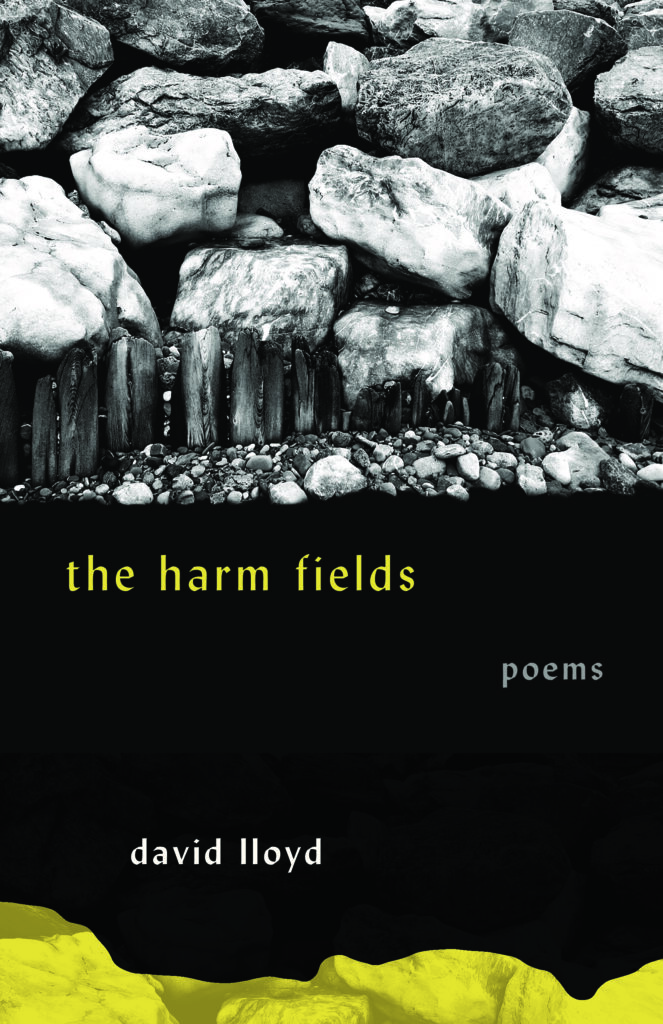
David Lloyd’s poetry abides in a lineage of poetic modernism, often in dialog with poets like César Vallejo, Paul Celan, and Mahmoud Darwish. The poems in Dark Room are rich in imagery, their language a fluent mix of registers, from colloquial idiom to technical language and literary citation, and replete with multilingual puns and portmanteaux. These poems carry forward the musical values and the questioning project of modernist lyric, but their concerns are contemporary, haunted by the ongoing brutality of the times, from Ireland to Palestine, and reaching for a language adequate to mourning, persistence, and utopian possibility.
First comes a kind of prelude, a prose consideration of language, identity, belonging, history, that grows up and out from local Irish and European origins. Then comes the cold, clear note of the poetry, and there is no point at which this isn’t poetry. Once launched, it never hesitates to explain itself or to doubt its own adequacy, it just moves. Material images dominate the verse, but their gravity is lightened by a play of relations made possible by an exactitude of sound, image, and echo that “sing / out from the nought rim spelling / with numbers”. There is a deep comfort in a language so inhabited, but it is not an easy one.
—Trevor Joyce, author of What’s In Store
Georgia Review Books, September 2022.
Reviews:
Mills, Billy. “Terra Terra and Bar Null by David Lloyd: a Review”. Elliptical Movements, January 2023.
Fadem, Maureen Ruprecht. “‘A thing breaks beyond naming’: a review article on David Lloyd’s 2022 books, Counterpoetics of Modernity and The Harm Fields.” Irish Studies Review 31.3 (November 2023).
Arc and Sill: Poems 1979-2009
Paperback, 150pp, 9x6ins
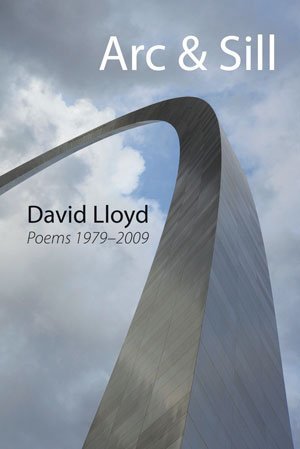
David Lloyd’s two recent chapbooks, Sill and Vega, have seen his poetic writing develop a constellated elegance, drawing on the European dialectical lyric for the resonance of key terms such as ‘sill’, ‘lintel’, ‘sheet’, ‘flock’ and ‘stone’ but on American objectivism for its precisely-punctuated prosody. While David Lloyd can be a mighty polemicist in scholarship, his poetry is noteworthy for its extreme linguistic scrupulousness.
~John Wilkinson
Intellectual, sensuous and knowing, David Lloyd’s poetry shimmers across a lyric ‘I’ that disappears/reappears, where conventions are toyed with, suggested, then drowned in alternative possibilities. ‘Molten gold was threaded into foundations & seams gleamed in the mortar. Mother mother they cried &/drained away the vital flux into the soil’.
~Maurice Scully
https://www.shearsman.com/store/-p102838896
On Arc & Sill:
Davis, Alex. “Modernist Topoi and Late Modernist Praxis in Recent Irish Poetry (with Special Reference to the Work of David Lloyd), in Paige Reynolds, ed. Modernist Afterlives in Irish Literature and Culture (London: Anthem Press, 2016): 61-73.
Furrow Archive
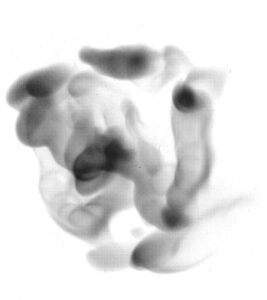
The trio of sequences, Furrow Archive, honors Ezra Pound’s dictum, “Dichtung = condensare.” Concentrated, apparently slight lyrics and epigrams open onto wider fields and time scales, from the geological in Kodalith to the relation of interiority, music and history in The White Note. Light writing in stone, the furrows the poems carve constitute an archive of the instant meeting with duration in “momentary branchings of the breath.” Smoke drawings by Jessica Huang.
Sample from Bar Null
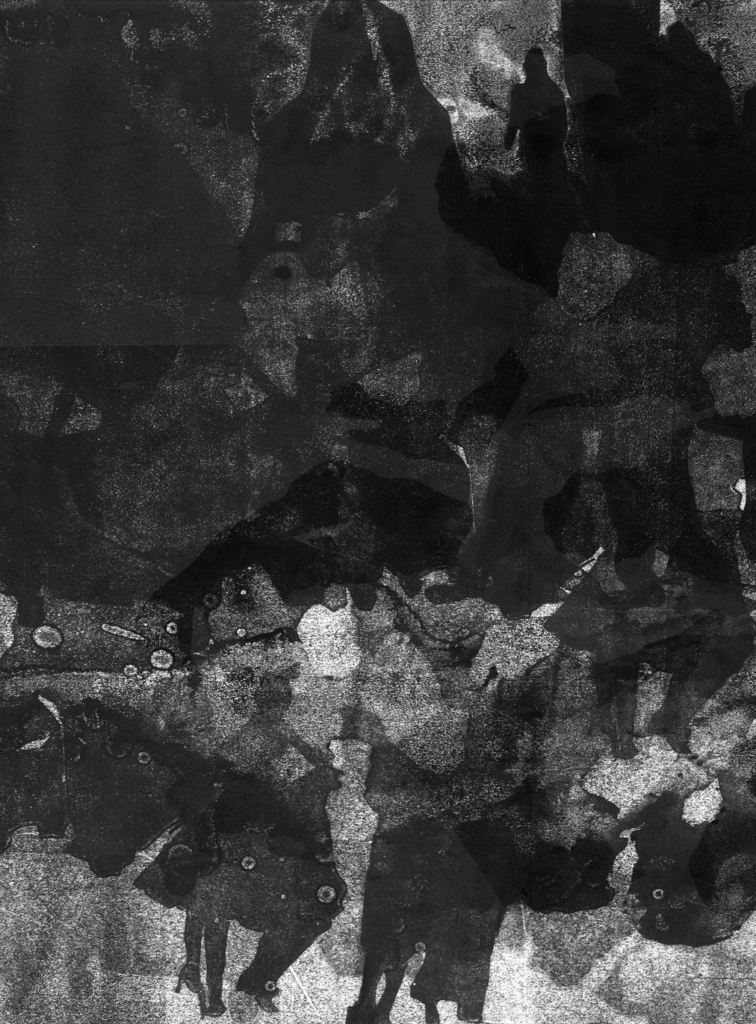
Morning thunder joins the peaks, copula
of rain raises the earth in a bright
snatch of decay. The tenanted house
is mildewed, filming of damp moss sweetens
the granite step. This you must take now,
stone by stolen stone, and tumble: dis-
mantled rock rolling uprooted down the slope.
Seated in solace, bent to his yeasty kieve,
master of fermentations breaks it down: haloes
of wort-rings unfold through the litmus, this
nonsense-mediated decay tense with the ash
of things, raven chatter hectoring the tepid
cloud. I tell you, he found his real face there
down by the sluggish waters, in the dank retort,
till your white head silent and your set jaw
stared everything down into its sullen earth.
Anna Gallwey, “passenger” (detail), monoprint on rice paper, c. the artist, 2018.
The Press / Le Placard
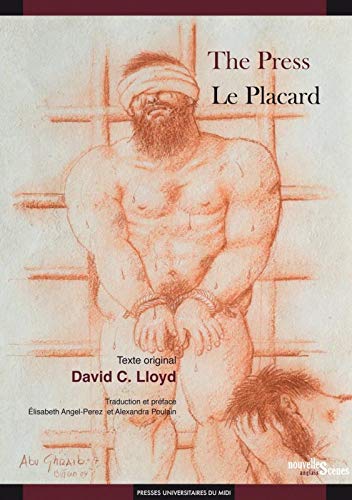
Dans un espace carcéral indéfini, camp de concentration ou prison ultra-moderne, qui est aussi un chantier de construction, deux prisonniers, Ancel et Gruber, se tuent au travail. Ils bâtissent le futur Palais de la Culture à la gloire du Boss, le dictateur d’un régime sanguinaire dont Ancel fut jadis le poète officiel, avant d’en découvrir toute l’horreur et d’entrer en résistance. Quant à Gruber, peintre prolétaire, il fut un dissident de la première heure, et continue à protester depuis sa prison en peignant le chaos ambiant de tous ses fluides corporels. Le huis clos entre les deux hommes est interrompu par les visites des émissaires du Boss — Feck, le gardien de prison sadique, Petra, la fille du Boss et ancienne maîtresse d’Ancel, et Hamm et Sham, les deux clowns grotesques qui furent jadis ses élèves avant de vendre leur âme au Boss — qui se succèdent auprès d’Ancel pour le convaincre de renoncer à sa posture de résistance : il suffirait qu’il écrive un seul poème à la gloire du Boss pour sortir de prison. La pièce se souvient de la montée des totalitarismes et des grands cataclysmes humains du XXe siècle, mais aussi, obliquement, de l’attitude intraitable du pouvoir britannique face au combat des prisonniers républicains irlandais au début des années 1980. Allégorie tragique et burlesque sur la responsabilité de l’artiste face au pouvoir, elle s’inscrit dans la grande tradition du théâtre irlandais, à la suite de W.B. Yeats et de Samuel Beckett, mais invente un langage dramaturgique singulier et éminemment contemporain en détournant les codes du réalisme.
On The Press:
Poulain, Alexandra. “The Seduction of Silence: Ethical Interpellations in W.B. Yeats’s The King’s Threshold, Samuel Beckett’s Endgame and David Lloyd’s The Press”, in Irish Drama, Modernity and the Passion Play (London: Palgrave Macmillan, 2016): 223-240.
